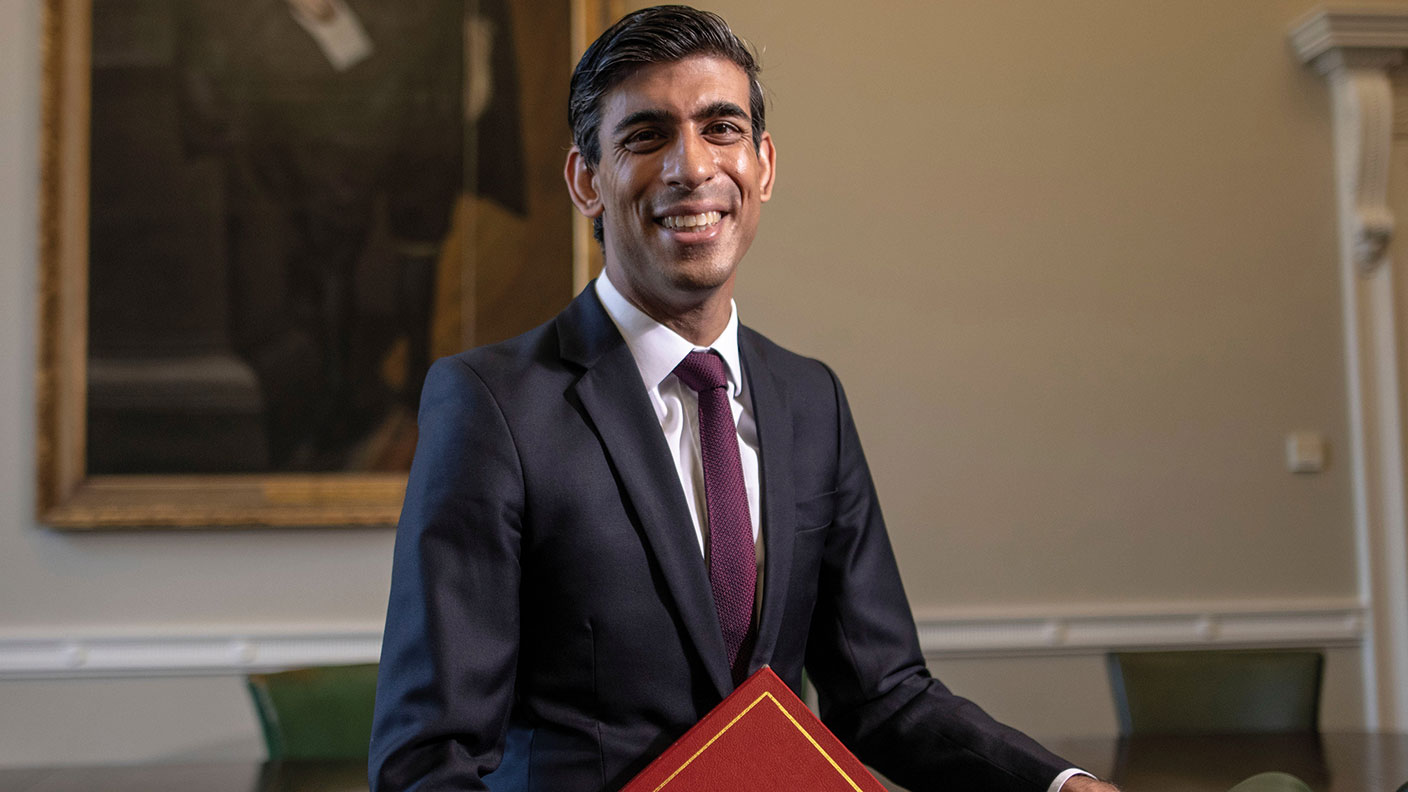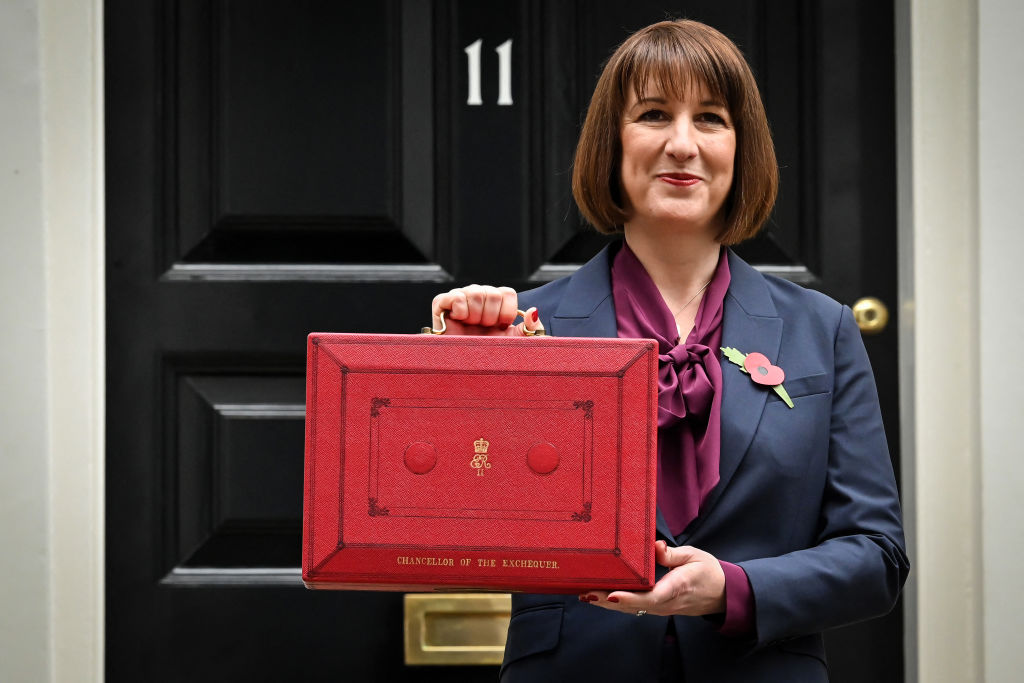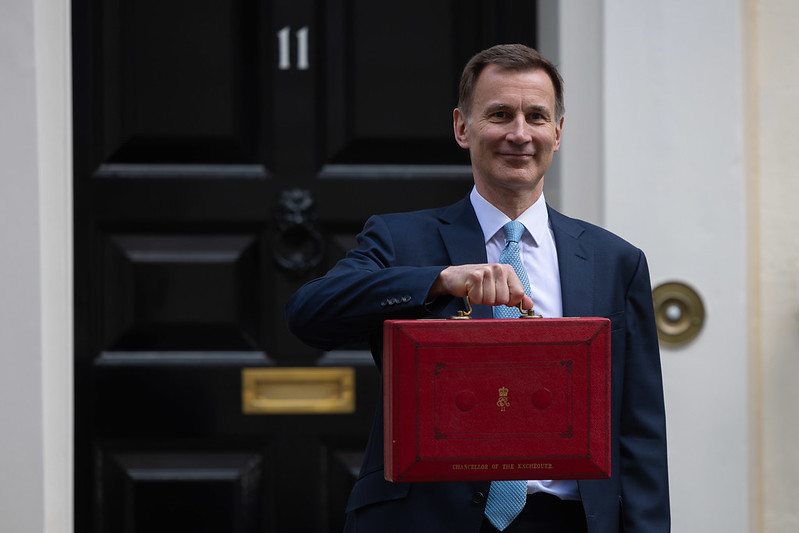The case for a flat tax
Simplifying the tax system promises to cut incentives for evasion and avoidance, and boost work and entrepreneurship. Could it give post-Covid-19 Britain the lift it needs?

Get the latest financial news, insights and expert analysis from our award-winning MoneyWeek team, to help you understand what really matters when it comes to your finances.
You are now subscribed
Your newsletter sign-up was successful
Want to add more newsletters?

Twice daily
MoneyWeek
Get the latest financial news, insights and expert analysis from our award-winning MoneyWeek team, to help you understand what really matters when it comes to your finances.

Four times a week
Look After My Bills
Sign up to our free money-saving newsletter, filled with the latest news and expert advice to help you find the best tips and deals for managing your bills. Start saving today!
What is proposed?
That there should be just one single positive marginal rate of tax – 20%, say – rather than progressively higher rates as earnings rise (as under the current system). The idea is to simplify the system so as to encourage compliance and create an incentive for higher earners – thus boosting the economy. In theory, a flat-tax structure could be devised in which one single rate covers income tax, national insurance, corporation tax, value-added taxes and even inheritance tax. The US academics with whom a flat tax is most associated, Robert Hall and Alvin Rabushka, argued for a flat tax on both individuals and companies, for example. In general, however, the term “flat tax” typically means replacing the existing income-tax rules with a single marginal tax rate and sweeping away the various tax bands, exemptions and allowances.
Wouldn’t that be regressive?
Not necessarily. Most models do include an exempted amount of income and sometimes a significantly increased personal allowance. Thus the tax remains progressive at lower rates of income and tax, but becomes close to proportional at higher incomes (ie, as the exempt amount becomes a steadily smaller share of the total income). Naturally, much depends on the details. According to economic modelling by the Institute for Fiscal Studies – examining four potential flat-tax structures for the UK, all of them intended to be revenue-neutral – some versions of a flat tax would in fact be progressive, in the sense of favouring lower earners. A simple flattening of income-tax rates alone does redistribute towards those with high incomes, but if NI contribution rates are also flattened, it tilts the reform in favour of lower earners.
Why change?
The rationale is that by simplifying the tax code – and making the single rate sufficiently low – you save people and businesses time and money, drive up compliance rates by reducing the incentive for tax evasion or avoidance and stimulate the economy by increasing the incentives for extra effort and risk-taking. As such, the flat tax is typically favoured by small-state conservatives and economic liberals. Proponents of flat taxes argue that they pay for themselves, since the higher rates of compliance and the expansion of economic activity contribute to the broadening of the tax base. As such, flat taxes bring in more revenue notwithstanding the lower rate, and can even mean the rich pay a bigger proportion of the total. Flat taxes can also cut away all the confusion and complexity that lets evasion and avoidance thrive – and hence allows resentment of the rich to fester.
MoneyWeek
Subscribe to MoneyWeek today and get your first six magazine issues absolutely FREE

Sign up to Money Morning
Don't miss the latest investment and personal finances news, market analysis, plus money-saving tips with our free twice-daily newsletter
Don't miss the latest investment and personal finances news, market analysis, plus money-saving tips with our free twice-daily newsletter
Have any countries tried it?
Lots, mostly in post-communist Russia and eastern Europe. In 1994, Estonia replaced three tax rates on personal income, and another on corporate profits, with a uniform rate of 26% on both. Latvia and Lithuania followed suit – as did (from 2001) Russia, with a rate of 13% on personal income (but not corporation tax) and Slovakia (19% on personal and corporate income). In the years that followed several other central and eastern European countries, including Romania, Macedonia, Montenegro and Albania, all took the plunge with various forms of flat tax. The most studied of these examples is Russia, where evidence (for example from the IMF) suggests that its landmark 2001 reform did indeed increase compliance.
Would it work here?
Over the years the Tories have occasionally flirted with the idea. But backing for a flat tax has remained largely the preserve of think tanks and lobby groups. One main argument against a flat tax is that current taxes are complicated for a reason – it’s not the number of tax rates that makes the tax code complicated, it’s the fact that defining income is a complicated business – a job made harder in the context of a complex, globally integrated economy where many participants really are trying to avoid as much tax as possible. Income is complex: it makes sense that taxing it is complex, too.
What about the Russian example?
Those countries in eastern Europe that adopted flat taxes were all relatively poor with relatively weak governance and correspondingly large catch-up opportunities. By contrast, the UK has a well-established legal, corporate and fiscal framework, where the view that a flat tax could lead to a big jump in compliance looks much shakier. And the role of flat taxes in generating increases in the tax take in Russia and elsewhere has proved hard to quantify since those economies were at the same time subjected to so much additional radical reform. In recent years Latvia and Lithuania have both dropped their flat taxes and moved to a progressive system.
So forget the whole thing then?
Any revenue-neutral flat tax would be a tough sell politically, since it would inevitably produce a large number of losers, most of them falling in the middle of the income distribution. But the chancellor, Rishi Sunak, will need to think big to fill the giant post-pandemic fiscal hole, says Ross Clark in The Spectator. His review of capital-gains tax is a start: it’s far too easy for the wealthy to avoid tax by engineering income as capital gains. But he could “go the whole hog” and introduce a flat tax that covers income and capital gains, and even inheritances and investment income. Sunak’s challenge is not to use a flat tax to cut the tax base, but increase it. Flat taxes are often seen as politically unviable because of the perception that millionaires pay the same rate as the low-paid. “But it doesn’t have to mean that at all,” as Clark says. One solution would be a “two-rate flat tax”, say of 20% and 40%. “The important element is that all income, capital gains, etc, are treated the same way – and that therefore there are far fewer opportunities for avoidance.” A two-tier flat-tax system would be simpler and fairer – and raise more tax.
Get the latest financial news, insights and expert analysis from our award-winning MoneyWeek team, to help you understand what really matters when it comes to your finances.
-
 Early signs of the AI apocalypse?
Early signs of the AI apocalypse?Uncertainty is rife as investors question what the impact of AI will be.
-
 Reach for the stars to boost Britain's space industry
Reach for the stars to boost Britain's space industryopinion We can’t afford to neglect Britain's space industry. Unfortunately, the government is taking completely the wrong approach, says Matthew Lynn
-
 The most and least expensive countries to be an expat in 2025
The most and least expensive countries to be an expat in 2025With some Brits fleeing the country to avoid seemingly ever-increasing taxes, we look at the most and least expensive countries to emigrate to.
-
 What has changed with employers’ National Insurance – and how will it impact you?
What has changed with employers’ National Insurance – and how will it impact you?Will you feel the effects of the National Insurance hike, as businesses warn of redundancies, smaller pay rises and higher inflation?
-
 Conservatives pledge to cut National Insurance again – how much could you save?
Conservatives pledge to cut National Insurance again – how much could you save?News A 2p reduction in National Insurance is a key feature of the Tory’s general election manifesto.
-
 Workers set for new national insurance tax cut – how much will you save?
Workers set for new national insurance tax cut – how much will you save?News National insurance tax rates have fallen but frozen allowances may limit the benefits.
-
 Spring Budget: What the latest National Insurance cut means for you
Spring Budget: What the latest National Insurance cut means for youNews Chancellor Jeremy Hunt announced a 2p cut in National Insurance in his latest fiscal update – how much could you actually save?
-
 Budget 2024: National Insurance cut, a new British ISA, and reform of the child benefit charge - here’s what has been announced
Budget 2024: National Insurance cut, a new British ISA, and reform of the child benefit charge - here’s what has been announcedThe chancellor has announced a host of changes, including cutting National Insurance again, and abolishing some tax reliefs. Here’s how the Budget will affect your finances.
-
 Brace for a year of tax rises
Brace for a year of tax risesThe government is strapped for cash, so prepare for tax rises. But it’s unlikely to be able to squeeze much more out of us.
-
 Topping up state pension to become easier with new online tool
Topping up state pension to become easier with new online toolAnyone looking to buy extra National Insurance contributions and boost their state pension currently has to make multiple phone calls - but a new online tool is on its way.